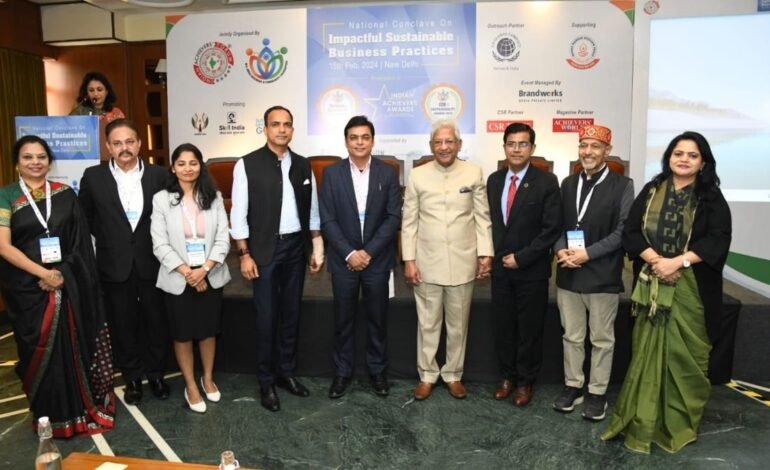
Understanding ASCVD in the Younger Generation: A Guide to Cholesterol Awareness
Ahmedabad (Gujarat) [India], February 21: In India, nearly a quarter of all deaths (24.8%) are due to heart diseases, and they affect people about ten years earlier than in Western countries.[1] [2] High cholesterol levels can contribute to this issue, increasing the risk of heart diseases and other heart-related issues.
Atherosclerotic Cardiovascular Disease (ASCVD) is a long-term health problem where cholesterol builds up in arteries, causing plaque to form. This can lead to serious problems like heart attacks and strokes. Now, even younger people are at risk because of lifestyle changes and other factors. To have a healthier future, it’s crucial for young people to understand the role of cholesterol and manage it, especially “bad cholesterol” called Low-Density Lipoprotein Cholesterol (LDL-C). Hence, creating awareness amongst the youngsters is of utmost importance.
Dr. Milan Chag, Interventional and Heart Transplant Cardiologist, Lipidologist and Preventive Cardiologist, Marengo CIMS Hospital, Ahmedabad, said, “I emphasize on the significance of routine screenings for early diagnosis of cardiovascular risks, particularly in the younger generation. Indians have one of the highest prevalence of heart disease in the world and almost 25% of heart attacks in India occur before the age of 40 years. Awareness is the first step towards management, and regular screenings enable people to take control of their heart health. Encouraging a heart-healthy lifestyle in the younger generation requires a comprehensive approach to health that incorporates proactive screening, stress reduction and keeping Blood pressure to < 120/80 mm Hg, Low Density Lipoprotein (LDL) to < 70 mg/ dL.”
Does Your Family History Shape Your Heart’s Future?
It is highly important for young individuals to be proactive in managing their heart health, especially if there’s a family history of heart disease or related issues. Genetics plays a crucial role in determining susceptibility to ASCVD, making early intervention necessary. Understanding and addressing family predispositions empowers young individuals to adopt lifestyle changes that can help in managing potential risks. Regular check-ups and consultations with healthcare professionals provide insights into genetic factors, enabling personalized treatment strategies for a healthy heart.
Here is your guide to managing ASCVD
Taking proactive steps to manage ASCVD is essential for ensuring a healthy and resilient heart. Some things to keep in mind could be:
- Regular Health Check-ups:
Young individuals can proactively manage their health by prioritizing regular cholesterol screenings. This can help stay informed about their cholesterol levels. It is also necessary to take proper timely medications whenever prescribed.
- Keep your health in check:
Along with your doctor visits, it is also important to keep your physical health in check and a balanced diet is fundamental to keep your heart in check. Some form of exercise helps maintain a healthy weight, reduces blood pressure, and improves overall heart health.
- Quit Smoking:
Smoking is a major contributor to heart diseases.[3] It is necessary to encourage young individuals to quit smoking and work towards a healthier lifestyle.
- Stress Management:
With today’s stressful lifestyles, implementing stress management techniques can provide individuals with effective coping mechanisms. Techniques such as mindfulness, meditation, and regular breaks can contribute to overall well-being.
Managing ASCVD requires a collective effort to increase awareness and promote proactive health practices. Understanding cholesterol levels and adopting management strategies can significantly contribute to reducing the prevalence of heart disease. Let’s work towards ensuring a healthier future for the younger generation!
[1] Cardiovascular Diseases in India – Current Epidemiology and Future Directions. Circulation. 2016;133:1605–1620
[2] Cardiovascular diseases in India. Circulation. 2016;133:1605–1620
[3] Centers for Disease Control and Prevention – Office on Smoking and Health
If you have any objection to this press release content, kindly contact pr.error.rectification@gmail.com to notify us. We will respond and rectify the situation in the next 24 hours.





